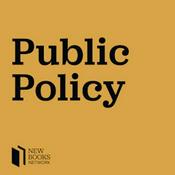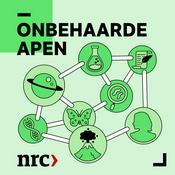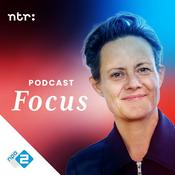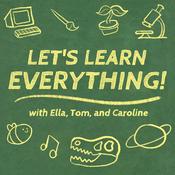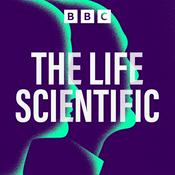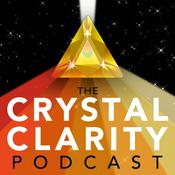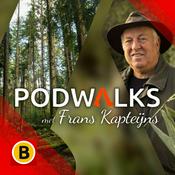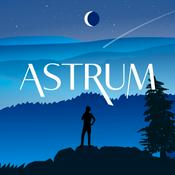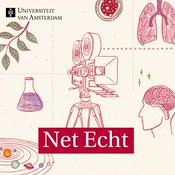2073 afleveringen
Erick Guerra, "Overbuilt: The High Costs and Low Rewards of US Highway Construction" (Island Press, 2025)
20-2-2026 | 36 Min.The world’s largest public works investment visible from space, the Interstate Highway System and the hundreds of thousands of miles of supporting roadways, are frequently hailed as a marvel and triumph of engineering. President Eisenhower’s 1956 Interstate Highway Act is often praised as a model of successful bipartisanship.
Today, the extensive damage wreaked by the creation of the highway system and the ills of car dependency are more widely acknowledged. Congestion and traffic deaths remain endemic despite nearly three-quarters a century of public policies and trillions of dollars spent with a primary stated goal of reducing congestion and improving traffic safety. The financing, governance, and construction models established by the 1956 act continue to influence what gets built today.
In Overbuilt: The High Costs and Low Rewards of US Highway Construction (Island Press, 2025), transportation planning expert Dr. Erick Guerra describes how the US roadway system became overbuilt, how public policy continues to encourage overbuilding, what the scale and consequences of overbuilding are, and how we can rethink our approach to highway building in the US.
Guerra explains that the national propensity to build roadways is no longer official or intentional policy. Instead, overbuilding stems from the institutions, finance mechanisms, and evaluation metrics developed in the first half of the twentieth century. While more funds are set aside for transit, walking, biking, and beautification, the investment paradigm has not changed. Planners and engineers have not adjusted the tools they use to determine which roads should be built, rebuilt, or widened and why. The country has added more lanes of urban Interstate since declaring the Interstate system complete than prior to it.
Despite having too much roadway, the country is still operating in construction mode, using the same basic approach used to finance and build the interstate system quickly, Dr. Guerra states. The interstate was completed more than three decades ago. Overbuilt argues convincingly that it is time to move on.
This interview was conducted by Dr. Miranda Melcher whose book focuses on post-conflict military integration, understanding treaty negotiation and implementation in civil war contexts, with qualitative analysis of the Angolan and Mozambican civil wars. You can find Miranda’s interviews on New Books with Miranda Melcher, wherever you get your podcasts.
Learn more about your ad choices. Visit megaphone.fm/adchoices
Support our show by becoming a premium member! https://newbooksnetwork.supportingcast.fm/public-policyDavid Obst, "Saving Ourselves from Big Car" (Columbia Business School Publishing, 2025)
17-2-2026 | 1 u.Streetwise: Saving Ourselves from Big Car (Columbia Business School Publishing, 2025) exposes how “Big Car”―the complex of companies in the automobile, oil, insurance, media, and concrete industries that promote and entrench car dependence―has pursued profit at the expense of the common good. David Obst explores how Big Car gained almost immeasurable influence over our lives, weighing the benefits and the costs of reliance on private automobiles. He details how industry covered up the harms of lead additives, fought against seatbelts, and continues to fund climate-change denialism. Obst considers the future of mobility, surveying how cities―from Taipei to Tempe, Copenhagen to Chicago―are experimenting with forms of transportation that offer alternatives to the dominance of cars. This is a provocative and comprehensive book.
Learn more about your ad choices. Visit megaphone.fm/adchoices
Support our show by becoming a premium member! https://newbooksnetwork.supportingcast.fm/public-policyHanna Garth, "Food Justice Undone: Lessons for Building a Better Movement" (U California Press, 2026)
14-2-2026 | 46 Min.Food justice activists have worked to increase access to healthy food in low-income communities of color across the United States. Yet despite their best intentions, they often perpetuate food access inequalities and racial stereotypes. Hanna Garth shows how the movement has been affected by misconceptions and assumptions about residents, as well as by unclear definitions of justice and what it means to be healthy. Focusing on broad structures and microlevel processes, Garth reveals how power dynamics shape social justice movements in particular ways.Drawing on twelve years of ethnographic research, Garth examines what motivates people from more affluent, majority-white areas of the city to intervene in South Central Los Angeles. She argues that the concepts of "food justice" and "healthy food" operate as racially coded language, reinforcing the idea that health problems in low-income Black and Brown communities can be solved through individual behavior rather than structural change. Food Justice Undone: Lessons for Building a Better Movement (U California Press, 2026) explores the stakes of social justice and the possibility of multiracial coalitions working toward a better future.
Hanna Garth is Assistant Professor of Anthropology at Princeton University, author of Food in Cuba: The Pursuit of a Decent Meal, and coeditor of Black Food Matters: Racial Justice in the Wake of Food Justice.
Reighan Gillam is Associate Professor in the Department of Latin American, Latino, and Caribbean Studies at Dartmouth College. Her research examines the ways in which Afro-Brazilian media producers foment anti-racist visual politics through their image creation. She is the author of Visualizing Black Lives: Ownership and Control in Afro-Brazilian Media (University of Illinois Press).
Learn more about your ad choices. Visit megaphone.fm/adchoices
Support our show by becoming a premium member! https://newbooksnetwork.supportingcast.fm/public-policyRon Hayduk, "Untangling the Political Roots of Immigration and Inequality in the United States" (Routledge, 2026)
10-2-2026 | 30 Min.Untangling the Political Roots of Immigration and Inequality in the United States (Routledge, 2026) examines the causes, consequences, and politics of mass migration and growing inequality by investigating the case of the United States – the quintessential immigrant nation. While scholars, policy makers, and advocates have put forth a variety of explanations, many misdiagnose the causes and put forward remedies that treat symptoms. This book looks to the root causes of mass migration and intensifying inequality, arguing that they are two sides of the same coin resulting from rapacious forms of capitalist accumulation and imperialist interventionism. Developing a broadly left analytic framework grounded in elements of Marxist theory and political science, two periods are examined – 1870–1925 and 1970–2025 – when the proportion of immigrants in the US peaked at 15% of the total population, the US experienced steep inequality and political polarization, immigration and inequality became contentious political issues that generated sharp conflict, and immigrants and workers organized mass movements that advanced radical politics and transformative change. This book contains a wealth of information and elevates valuable lessons for scholars, policy makers, and organizers interested in understanding these trends and forging equitable and just solutions today.
Learn more about your ad choices. Visit megaphone.fm/adchoices
Support our show by becoming a premium member! https://newbooksnetwork.supportingcast.fm/public-policyDafeng Xu, "Chinatown: San Francisco's 1906 Earthquake and the Paradox of American Immigration Policy" (JHU Press, 2026)
04-2-2026 | 53 Min.San Francisco's Chinatown is the oldest Chinatown in North America and one of the largest Chinese enclaves outside Asia. Spanning 30 city blocks and home to tens of thousands of monolingual Chinese residents, its endurance is remarkable—especially given how close it came to erasure.
In Chinatown: San Francisco's 1906 Earthquake and the Paradox of American Immigration Policy (JHU Press, 2026), Dr. Dafeng Xu uncovers the contested history of this vibrant community, focusing on the transformative period surrounding the 1906 earthquake and fire that destroyed 80 percent of the city, including Chinatown. White San Franciscans saw the disaster as an opportunity to permanently displace the neighborhood. Instead, Chinatown was rebuilt—but not without conflict or consequence. Using detailed census data and other historical documents, Dr. Xu examines how this rebuilt Chinatown differed socially and physically from its earlier form—and the many ways it stayed the same. He explores whether the earthquake shifted patterns of segregation, if and how Chinese immigrants navigated pressure to assimilate—including adopting English, changing their names, and leaving ethnic neighborhoods—and whether they gained economic ground in the city's new landscape.
Dr. Xu's study reveals a striking contradiction: while Chinese Americans were often criticized for not assimilating, systemic barriers made that very process nearly impossible. The post-disaster Chinatown became a symbol of cultural resilience, shaped by both community agency and persistent exclusion. Rich in insight and original research, Chinatown offers a powerful look at how disaster, racism, and resistance shaped one of America's most storied immigrant neighborhoods.
This interview was conducted by Dr. Miranda Melcher whose book focuses on post-conflict military integration, understanding treaty negotiation and implementation in civil war contexts, with qualitative analysis of the Angolan and Mozambican civil wars. You can find Miranda’s interviews on New Books with Miranda Melcher, wherever you get your podcasts.
Learn more about your ad choices. Visit megaphone.fm/adchoices
Support our show by becoming a premium member! https://newbooksnetwork.supportingcast.fm/public-policy
Meer Wetenschap podcasts
Trending Wetenschap -podcasts
Over New Books in Public Policy
This podcast is a channel on the New Books Network. The New Books Network is an academic audio library dedicated to public education. In each episode you will hear scholars discuss their recently published research with another expert in their field.
Discover our 150+ channels and browse our 28,000+ episodes on our website: newbooksnetwork.com
Subscribe to our free weekly Substack newsletter to get informative, engaging content straight to your inbox: https://newbooksnetwork.substack.com/
Follow us on Instagram and Bluesky to learn about more our latest interviews: @newbooksnetwork
Support our show by becoming a premium member! https://newbooksnetwork.supportingcast.fm/public-policy
Podcast websiteLuister naar New Books in Public Policy, Scientias Podcast en vele andere podcasts van over de hele wereld met de radio.net-app
Ontvang de gratis radio.net app
- Zenders en podcasts om te bookmarken
- Streamen via Wi-Fi of Bluetooth
- Ondersteunt Carplay & Android Auto
- Veel andere app-functies
Ontvang de gratis radio.net app
- Zenders en podcasts om te bookmarken
- Streamen via Wi-Fi of Bluetooth
- Ondersteunt Carplay & Android Auto
- Veel andere app-functies

New Books in Public Policy
Scan de code,
download de app,
luisteren.
download de app,
luisteren.
